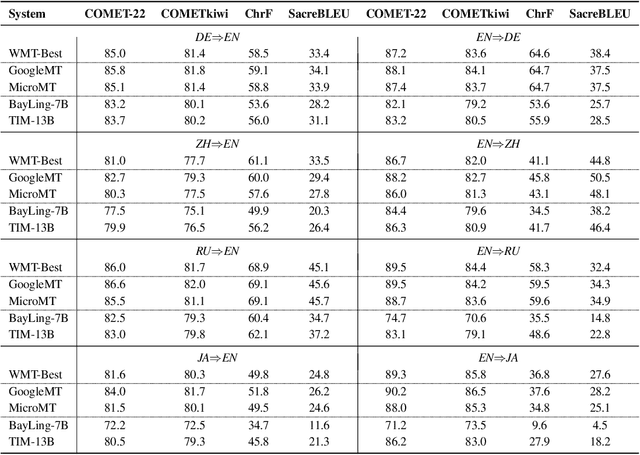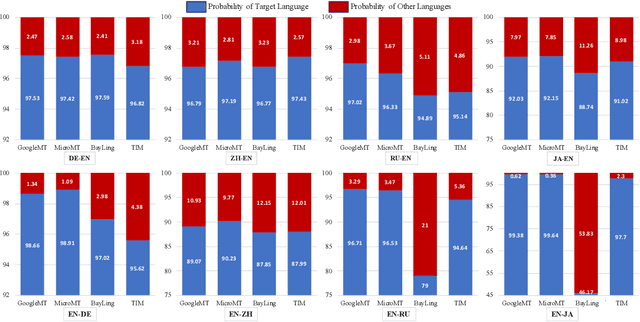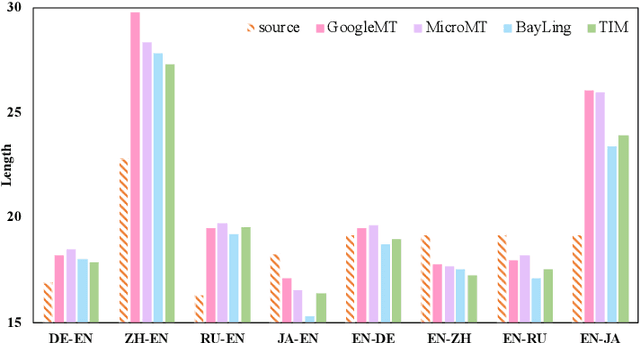Improving Machine Translation with Large Language Models: A Preliminary Study with Cooperative Decoding
Paper and Code
Nov 06, 2023



Contemporary translation engines built upon the encoder-decoder framework have reached a high level of development, while the emergence of Large Language Models (LLMs) has disrupted their position by offering the potential for achieving superior translation quality. Therefore, it is crucial to understand in which scenarios LLMs outperform traditional NMT systems and how to leverage their strengths. In this paper, we first conduct a comprehensive analysis to assess the strengths and limitations of various commercial NMT systems and MT-oriented LLMs. Our findings indicate that neither NMT nor MT-oriented LLMs alone can effectively address all the translation issues, but MT-oriented LLMs can serve as a promising complement to the NMT systems. Building upon these insights, we explore hybrid methods and propose Cooperative Decoding (CoDec), which treats NMT systems as a pretranslation model and MT-oriented LLMs as a supplemental solution to handle complex scenarios beyond the capability of NMT alone. The results on the WMT22 test sets and a newly collected test set WebCrawl demonstrate the effectiveness and efficiency of CoDec, highlighting its potential as a robust solution for combining NMT systems with MT-oriented LLMs in machine translation.
 Add to Chrome
Add to Chrome Add to Firefox
Add to Firefox Add to Edge
Add to Edge